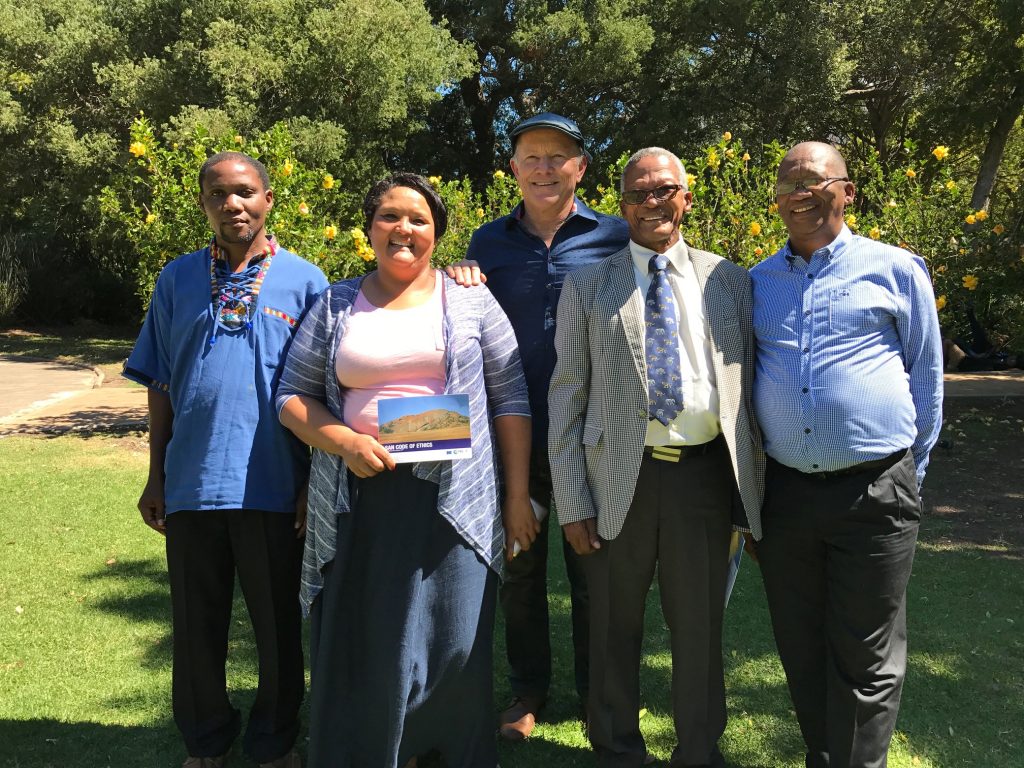
Francesca Irene Cavallaro. Bioethics and Ethics of Science and Technology, UNESCO[1]
In October 2015, the Kick-off meeting of the project TRUST opened with messages from two TRUST advisers who could not join the meeting, Prof. Jack Beetson, from Australia, and Prof. Fatima Alvarez-Castillo, from the University of Manila. Prof. Beetson wrote, “To reduce the likelihood of exploitation of indigenous peoples, long-term relationships need to be built with researchers and innovators”, while Prof. Castillo reminded us “In research ethics, the law is not enough. To claim rights, committed advocates must support vulnerable populations to speak with their own voice”. So, why the strong focus on exploitation and vulnerable populations?
It now seems clear, at least since the Lund Declaration (2009), that major societal challenges of our times such as global warming, tightening supplies of energy, water and food, pandemics and global health crises, can only be addressed with effective research and innovation, and policies that are global in their scope and which enable cross‐ and trans‐border collaboration. Exemplifying this approach, the United Nations’ Agenda 2030 for Sustainable Development, possibly the most ambitious societal reform program the International Community has ever approved, emphasizes that its implementation relies on successful research resulting in innovative technologies. However, the incredibly rapid progress of contemporary science and technology does not come free of important ethical, legal and social issues. In particular, the progressive globalization of research activities has led to an increased risk of exploitation of human participants and resources (including animals and the environment) in Low and Middle Income Countries (LMICs).
For example, the possibility of exploitation in international research collaborations is a well-known risk of the globalisation of clinical trials (Ravinetto, 2015). Relocations of clinical trials from industrialised affluent countries to LMICs, happens for a variety of reasons, which include: the possibility to set up and run trials in LMICs at much lower cost, in terms of materials, equipment, services, and staff; the existence of large pools of ‘treatment-naïve’ patients, research participants who have had little or no previous exposure to drugs, generally regarded as more reliable for clinical testing; legislative weaknesses of the local legal system allowing greater research “flexibility”; ignorance about the legal and ethical requirements for human trials among the public and even health care professionals; and finally, a general desire among developing countries to benefit from North-South collaborations.
These same reasons are fertile ground for potential violations of ethical principles that can and have happened and are extensively documented in research ethics literature (Macklin, 2004). Hence while many guidelines and standards addressing exploitation issues posed by research do exist and go through continuous cycles of revisions, like the Declaration of Helsinki for example, important challenges still remain.
The purpose of the TRUST project is to foster adherence to high ethical standards in research globally and counteract the practice of “ethics dumping”, or the application of double standards in research, by co-developing with vulnerable populations tools and mechanisms for the improvement of research governance structures. As part of its activity, the TRUST project has collected evidence of exploitation and violation of ethical principles in North-South research collaborations and has built a matrix identifying 88 risks mapped onto major ethics guidelines and grouped according to the four TRUST values of fairness, respect, care and honesty.
The involvement of marginalised, vulnerable groups and indigenous people as equal partners in the project has been pivotal to the successful completion of this work. In fact, with the help of two NGOs members of the TRUST consortium, the South African San Institute (SASI) and the Partners for Health and Development in Africa (PHDA), and thanks to a decade long collaboration between these two organizations and TRUST co-ordinator, Prof. Doris Schroeder, the project consortium had the opportunity to hear about risk factors for exploitation in research directly from representatives of two widely researched populations in developing countries: the San people of Southern Africa and the sex workers from the Majengo community in Nairobi.
To give voice to vulnerable populations, creating the conditions for an inclusive and fair debate on their needs and wants, is one of the main goals of the project. More ambitious still, though, is the aspiration of the project to empower them and provide them with sustainable tools that will help protect them against exploitation. On 2 March 2017, such an aspiration turned into a reality. Thanks to the support and collaboration with the TRUST project, three South African San groups – the Khomani, the !Xun and the Khwe – have developed their Code of Research Ethics with the assistance of SASI. Importantly, this code has been written by the San and is closely aligned with their own values.
By targeting the key ethical issues of North South research collaboration such as the need for guidelines to allow for specific cultural and social aspects of LMICs or local communities to be considered/included, and the gaps in compliance mechanisms to ensure that research is undertaken according to the protocol approved by an ethics review, TRUST aims to generate momentum and motivation for change. This change will help us shape a global, inclusive, and fair approach to research built upon equitable research partnership and strengthened by a relationship of trust between multiple stakeholders.
[1] Thanks to input from David Coles, Centre for Professional Ethics, UCLan.
References
Macklin R. (ed.). (2004). Double standards in medical research in developing countries’ (Cambridge law, medicine and ethics). Cambridge University Press.
Rangi S. (2015). How Globalisation Is Changing Research Agendas, Activities and Assessment Procedures within Research & Innovation, a report for SATORI, available at http://satoriproject.eu/media/D3.3_legal_aspects_globalisation.pdf
Ravinetto R. (2015). Methodological and Ethical Challenges In Non-Commercial North-South Collaborative Clinical Trials. Leuven University Press.
Schroeder D, Cook Lucas J, Fenet S, Hirsch F (eds) (2016). “Ethics Dumping” – Paradigmatic Case Studies, a report for TRUST, available: http://trust-project.eu/deliverables-andtools/
Michelle Singh and Doris Schroeder (2017). Exploitation Risks and Research Ethics Guidelines, a report for TRUST, available: http://trust-project.eu/deliverables-and-tools/
